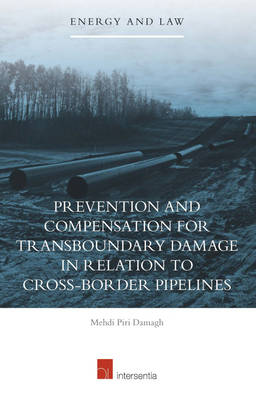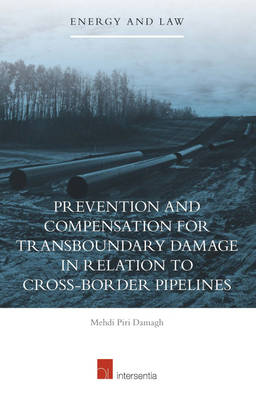
- Afhalen na 1 uur in een winkel met voorraad
- Gratis thuislevering in België vanaf € 30
- Ruim aanbod met 7 miljoen producten
- Afhalen na 1 uur in een winkel met voorraad
- Gratis thuislevering in België vanaf € 30
- Ruim aanbod met 7 miljoen producten
Zoeken
Prevention and Compensation for Transboundary Damage in Relation to Cross-Border Oil and Gas Pipelines
Volume 17
Mehdi Piri Damagh
€ 238,45
+ 476 punten
Omschrijving
Cross-border pipelines provide a relatively safe but economic tool for transportation of large quantities of oil and gas across international borders. Nowadays the international oil and gas pipeline network is expanding millions of kilometers worldwide. Meanwhile, just like any other industrial activities, pipelines cannot be kept completely safe from accidents. In the case of crossborder pipelines, unless appropriate measures have been taken by the parties involved for the prevention of such accident, the risks of such accidents are greater since control and monitoring are shared and it is more difficult to attribute blame for any transboundary damage.This book addresses the impact and application of various policy instruments and regulation at the international level, which may be considered as an appropriate instrument to guarantee the safety of cross-border oil and gas pipelines. Furthermore, this book addresses the issue of international responsibility for significant damage which may be caused by the cross-border pipelines, with an emphasis on the roles of states. The author provides answers to questions such as: What are the potential harms associated with cross-border oil and gas pipelines? What is the international legal regime applicable to cross-border pipelines? What are measures used to prevent and reduce damage which may be caused by crossborder pipelines? Is the current international legal regime applicable to crossborder and cross-country pipelines designed in such a way that it enables an effective prevention of trans-boundary damage? Under which conditions can states be held responsible for trans-boundary damage caused by pipelines?An economic analysis of safety and environmental regulation in relation to cross-border oil and gas pipelines in providing actors with adequate incentive to internalize pollution cost complements the book. Moreover, a detailed study of provisions of international and regional instruments in prevention of transboundary damage and compensation of such damage caused by crossborder pipelines will be provided. As a result this book contains the latest update of international and regional instruments with respect to prevention and compensation of transboundary damage caused by pipelines.
Specificaties
Betrokkenen
- Auteur(s):
- Uitgeverij:
Inhoud
- Aantal bladzijden:
- 482
- Taal:
- Engels
- Reeks:
Eigenschappen
- Productcode (EAN):
- 9781780683614
- Verschijningsdatum:
- 2/12/2015
- Uitvoering:
- Hardcover
- Formaat:
- Genaaid
- Afmetingen:
- 160 mm x 240 mm
- Gewicht:
- 957 g

Alleen bij Standaard Boekhandel
+ 476 punten op je klantenkaart van Standaard Boekhandel
Beoordelingen
We publiceren alleen reviews die voldoen aan de voorwaarden voor reviews. Bekijk onze voorwaarden voor reviews.











